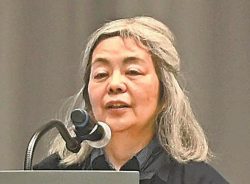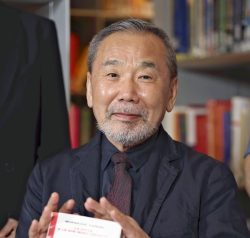‘Yatagarasu’ Fantasy Series Novelist Chisato Abe Reflects on Writing Process; Anime Adaptation Finds Popularity

Chisato Abe was born in Gunma Prefecture in 1991. She made her debut as a student at Waseda University, after receiving the 2012 Matsumoto Seicho Prize for her work, later published as “Karasu ni Hitoe wa Niawanai” (Extraordinary princess). Her “Yatagarasu” series was selected as the winner of the Yoshikawa Eiji Bunko (paperback) Prize for 2024.
12:00 JST, August 16, 2024
Chisato Abe, the author of the famous“Yatagarasu” (Yatagarasu: the legendary birds) fantasy novel series, says she is a “natural born novelist.” An avid reader of her favorite novels during childhood, she made her debut as an author when she was a university student. Now 32, she is rigorous and passionate as she fights hard to produce new works.
An anime adaptation of her Yatagarasu series is also proving to be popular.
A Yatagarasu is a legendary three-legged bird that appears as a messenger of a god in Japanese mythology. The bird is also used in the emblem for Japan’s national soccer team. Abe’s fantasy novels, which are published by Bungeishunju Ltd., are set in a fictional world called Yamauchi, where Yatagarasu live in human form. Abe came up with this meticulously conceived, grand-scale fantasy world when she was in high school.
“Both Western fantasies and Oriental fantasies were completely separate from my perspective. I wondered what perspective I could write about as the basis for my story’s reality, and I ended up choosing Japan,” Abe recalled.
The story revolves around five Yatagarasu families, including the Soke (head family), which governs Yamauchi, and four powerful aristocratic families that rule domains in the east, west, south and north of Yamauchi, where the Yatagarasu characters live while experiencing power struggles, turmoil and natural disasters.
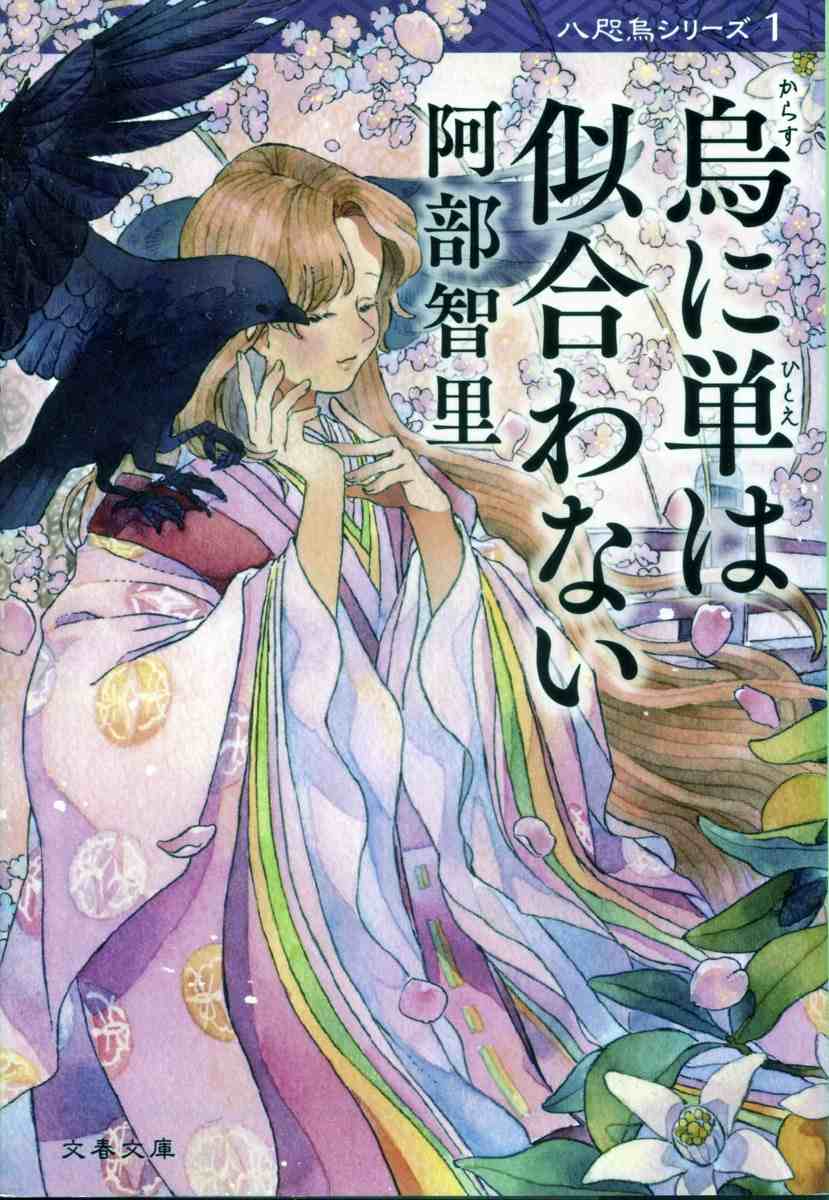
With 10 volumes and two spinoff books to date, the series has sold over 2 million copies. The series has been turned into a manga with art by Natsumi Matsuzaki and an anime adaptation, “Karasu wa Aruji o Erabanai” (“Yatagarasu: The Raven Does Not Choose Its Master”), which is broadcast on NHK-G from 11:45 p.m. on Saturdays.
‘Summoning’ her characters
The Yatagarasu series is sometimes likened to a fantasy series set in the majestic style of the Heian period (794-late 12th century), but the lives of ordinary people are like those of the Edo period (1603-1867), while there are also scattered signs of contemporary Japan. Part of the appeal of the series is that it is free from limitations and fixed ideas about historical periods.
When Abe is experiencing writer’s block, she sometimes summons the characters in her head and interviews them. Some are ready to respond, while others behave politely to her but start cursing once they leave the room (within Abe’s head).
“When I decided a certain character was about to die, that character made a passionate presentation to me about the good and the bad that would come from their death and convinced me to withdraw a story development that involved their death,” she said.
Although the series is very popular now, the sales of the first novel in the series, “Karasu ni Hitoe wa Niawanai” (Extraordinary princess), were sluggish upon publication in 2012. There were even talks of ending the series prematurely with the publication of the third volume, “Kin no Karasu” (The golden raven) in 2014. However, the paperback edition of the first volume, which came out shortly before that, became an unexpected huge hit, and Abe was given the green light from her publisher to write a fourth volume.
“That’s why I feel really grateful to people who picked up the book back then,” Abe said.
Crazy about ‘Harry Potter’
Abe has a soft and gentle air about her, as well as a cheerful and lively personality. As a child, she loved fantasy stories. She was deeply into the Harry Potter series and believed that, like in the novels, she would receive an acceptance letter from Hogwarts School of Witchcraft and Wizardry on her 11th birthday.
“At the end of the day, it didn’t come … but I liked fantasies that felt so real that readers thought like that,” she said.
She entered Waseda University’s School of Culture, Media and Society to become a novelist. While studying Japanese history and mythology, she was greatly impressed by the words of her mentor: “History is not facts from the past.”

A scene from the Yatagarasu series’ anime adaptation “Karasu wa Aruji o Erabanai”
“I think that ‘historicizing facts that happened in the past’ and ‘deciding on a work’s storyline’ share the same way of thinking,” she said.
Just linearly writing down events does not make a story. What each event means can vary depending on how it is viewed from person to person. Abe said her mentor’s words “had an impact on my stance as a writer.”
‘Write what I want to read’
While still an undergraduate, Abe received the Matsumoto Seicho Prize for “Karasu ni Hitoe wa Niawanai” and made her professional debut. At 20 years old, she was the youngest winner in the history of the prize.
At the core of Abe’s writing is determination to write what she wants to read, which is neither what she wants to write nor what readers want to read.
“What I want to write is so particular that readers would find it hard to follow. It is impossible to write something that satisfies each of the many unspecified readers. So I have to write what I, my most trusted reader, want to read,” Abe said. That said, she slams her past works saying, “They’re mostly s—!”
“I get annoyed, thinking, ‘Why didn’t I correct this even though it’s been pointed out to me?’ or ‘I wish I did away with that useless obsession.’ My debut work, there’s no way I’ll read it again,” she said, showing her harshness toward her own creations.
Abe sincerely faces the story before her. Such a dedicated attitude may be the driving force for her to produce so many great works.
Top Articles in Culture
-

BTS to Hold Comeback Concert in Seoul on March 21; Popular Boy Band Releases New Album to Signal Return
-

Director Naomi Kawase’s New Film Explores Heart Transplants in Japan, Production Involved Real Patients, Families
-
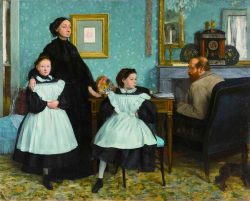
Tokyo Exhibition Offers Inside Look at Impressionism; 70 of 100 Works on ‘Interiors’ by Monet, Others on Loan from Paris
-
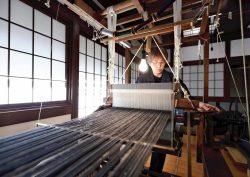
Traditional Japanese Silk Hakama Tradition Preserved by Sole Weaver in Sendai
-

Exhibition Featuring Yoshiharu Tsuge’s Manga World Underway in Chofu, Tokyo; Unique, Surreal Works Draw Steady Crowds
JN ACCESS RANKING
-

Producer Behind Pop Group XG Arrested for Cocaine Possession
-

Japan PM Takaichi’s Cabinet Resigns en Masse
-

Man Infected with Measles Reportedly Dined at Restaurant in Tokyo Station
-

Israeli Ambassador to Japan Speaks about Japan’s Role in the Reconstruction of Gaza
-

Videos Plagiarized, Reposted with False Subtitles Claiming ‘Ryukyu Belongs to China’; Anti-China False Information Also Posted in Japan




